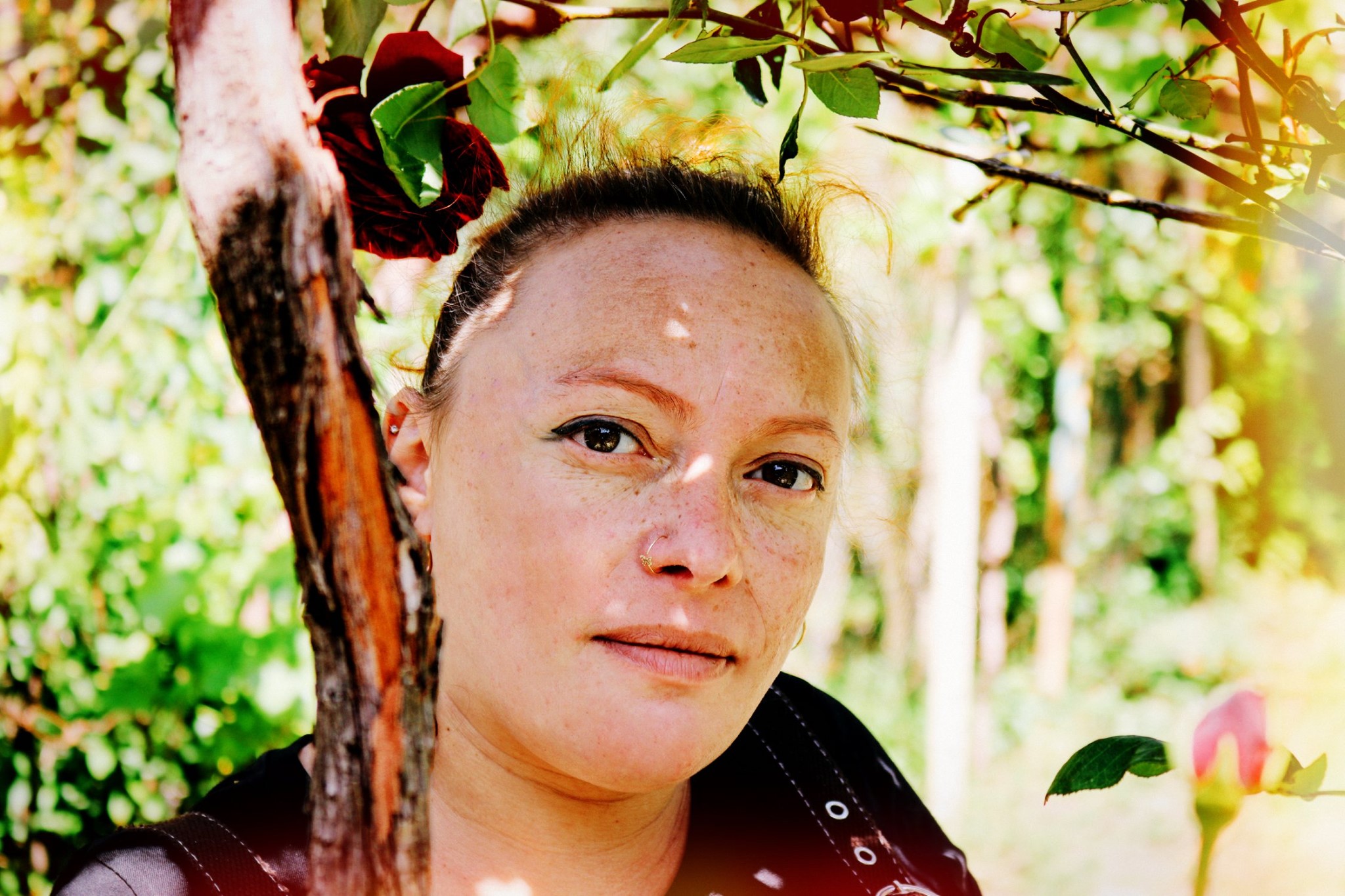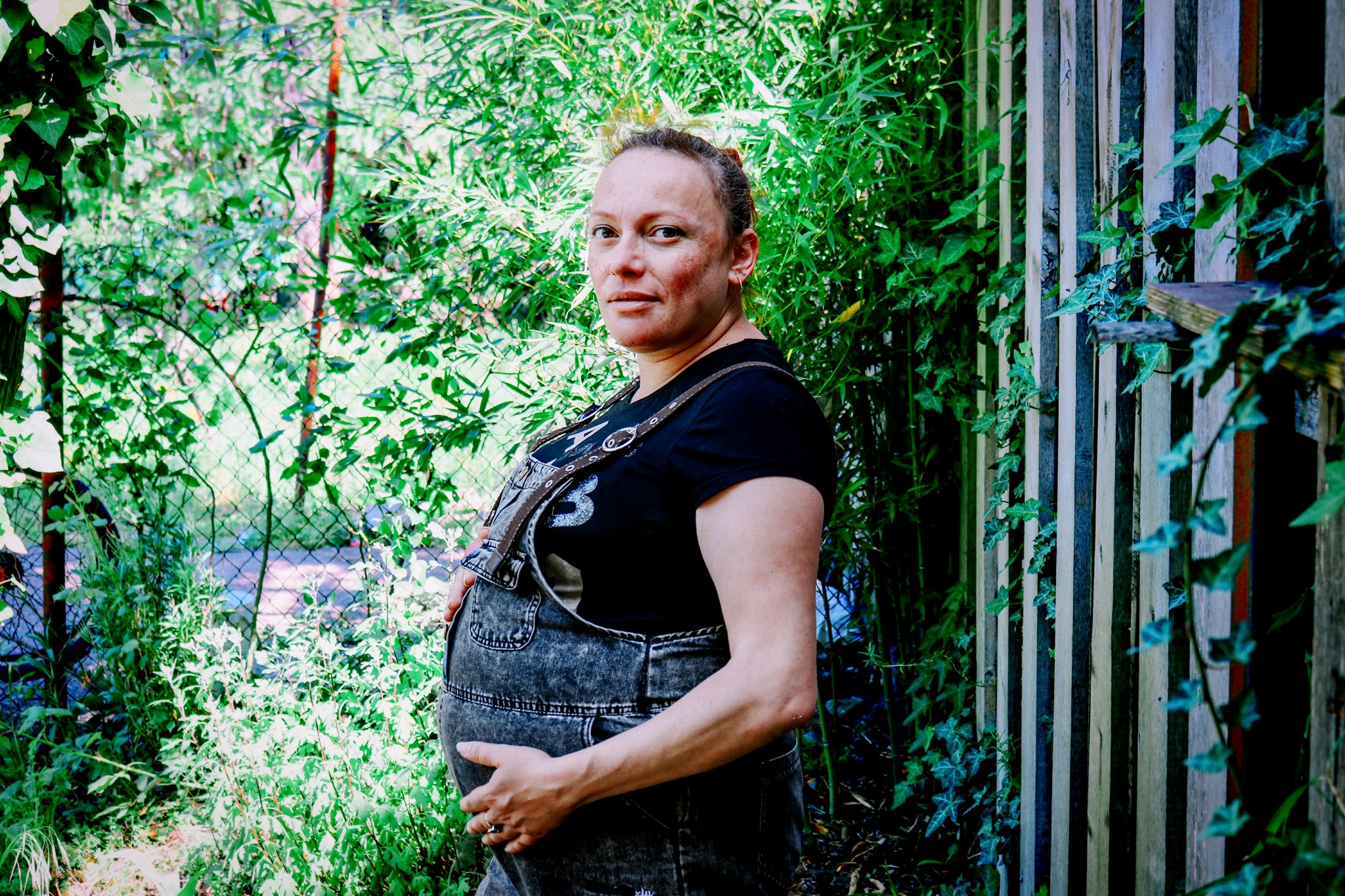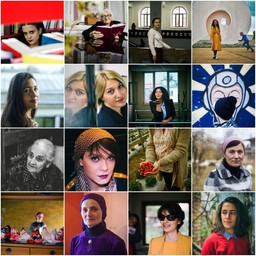
‘I am the only woman in Georgia who came out as HIV-positive. I have been living with this diagnosis for the past twelve years. I have three healthy children and am expecting a fourth now. I always dreamed about having a lot of children and I am happy I made my dream come true.’
‘In December 2008, in the fourth year of serving my sentence in prison I learnt that I was HIV-positive. In 2001, when I was pregnant with my first child, I was tested for HIV and the result was negative. When I got arrested, it was compulsory to have HIV as well as hepatitis B and C tests every year and each time the results were negative.’
‘Only in November 2008 the test result was positive; I was infected. There were only two risky activities from which I could have got infected: first — when I had appendicitis surgery at the Aramiantsi Hospital [in Tbilisi] and the second — when I had to get my tooth extracted which was in a complicated condition and it required surgery. The surgery was performed at the prison.’
‘I believe I was infected there. Before performing the surgery on me, the dentist had another patient — a male prisoner — who was quickly removed from the room the moment I came in, because men and women prisoners are not allowed in the same space. Probably that’s when the mistake took place. Probably the doctor mixed the tools. Exactly one year after the surgery I learnt about my diagnosis.’
‘I was 25 back then’
‘ “If you start medical treatment and take care of yourself, you will live for ten years”; “forget about having children, they will be born with the infection”, “They will live only three years”, — those were the myths the doctor in prison was telling me and I lived with those myths in prison. I was thinking a lot about those “10 remaining years”.’
‘I would think a lot about the past; how I lived my life, what my future was going to be like, what I would manage to do. As I was convinced that I wouldn’t be able to give birth any more, I was thinking of adopting a child after leaving prison. However with my biography, I would never have been able to do it and finally I gave up on this dream as well.’
‘I was afraid of the nights. I wanted to be awake longer. I was afraid of the mornings too, because I was afraid I would not make it till the evening. So I would sit behind bars, near the window, watching the dawn. I wanted to observe sunrise as many times as possible. Doctors prescribed me psychotropic drugs, so I wouldn’t lose my mind, but I felt I was getting addicted to those drugs. I decided to put myself together and to become stronger somehow. It took me three months.’

‘I decided to share my diagnosis with the women I had contact with. I could have kept it confidential, but I didn’t want to put their health at risk. I told them I wouldn’t feel offended if they decided to avoid me. In exactly half an hour the entire facility knew about my diagnosis.’
‘I felt a negative attitude more from the administration than from other inmates. This was because of stigma. People still associate a HIV/AIDS diagnosis with so-called immoral actions. I’ve been told many times that I could have gone to the pharmacy and protected myself, while in reality, I got infected in their prison because of the negligence of their employee. No one is protected from this. However there were other employees who had more empathy and tried to encourage me. I was almost a child when I ended up there.’
‘I was 21 when I got arrested’
‘I don’t know what to tell you. Probably it was fair that I had to be held responsible for taking away someone’s life granted by God. I, as a human being, didn’t have the right to do it. On the other hand, if I didn’t have that ‘skewer-like metal’, as it is described in my verdict, which was lying there, today I wouldn’t have been alive. I protected myself from the person who was systematically abusing me for years. I had brain concussions numerous times, an injured spine, jaw fracture, bruising — this is the list of injuries which I had as a result of this abuse.’
‘I couldn’t protect myself from this violence, because there was no legislation back then that would protect me and I was enduring all this, just to survive and stay alive.’
‘I was convicted for premeditated murder. I murdered my husband. I was sentenced to six years in jail. They added one year and a half for finding a cell phone and another year and a half for participating in a so-called ‘prison riot’ in 2009.’
‘I survived prison only because I felt support from my family, my parents and brothers. The only thing that was difficult for me was that I didn’t have any possibility to see my child. It is very difficult to cuddle your child when there is glass in between. My grandparents were alive back then. My grandfather was sending me half of his pension, so that I didn’t lack anything in prison, however when I left prison none of them were alive.’
‘It was very difficult for me to tell my family about my diagnosis. Their awareness about it was very low. They also believed the myths that only drug-addicts and sex-workers could have such a diagnosis. I knew it would be difficult for them.’
‘One day I asked the prison administration for brochures about HIV/AIDS and I asked my father one day to read them when he got home. He still couldn’t understand what I wanted to say. Then I told him directly that I was HIV positive. He froze. He couldn’t talk. My mother had a worse reaction. She was crying so much during the visit that I felt like I was at my own funeral. In such times the reaction of every person you tell devastates you. Finally they adapted to my diagnosis and realised that it was not a death sentence.’

‘I left prison on 10 November 2012. I left it with a double stigma — I was a convict and HIV-positive. I started treatment from the very second day. In the beginning of my treatment I had information about the side effects, but this could never become a reason for refusing the treatment. I wanted to live and I wanted to give life to others.’
‘After long-term treatment my virus was suppressed, it went to zero, my immunity level increased. I gave birth to two children after that, both healthy. Now I am expecting a fourth.’
‘My new family knows everything about my diagnosis’
‘At the end of May there is a day of commemorating those who died of AIDS. We celebrate this day together with the Association Pomegranate. Pomegranate is a symbol of a drop of blood. We want people to learn that we, the HIV-positive people, are not people to neglect. Our diagnosis is not a death sentence and dangerous to others. Nowadays it is managed by treatment and it is possible to live with it, like with other chronic diseases.’
‘ “Don’t leave anyone without medical services” — this is the main call of our campaign. Because of stigma, HIV positive people are often refused medical services. Even among doctors there is a very low awareness about this infection.’
‘There are government programs that finance treatment for the infection, but there are only four AIDS centres in the country and it is not enough. Unfortunately patient confidentiality is often violated. You may meet a lot of associates while being in a group to receive medicines. Information about your diagnosis may spread very fast.’
‘This problem is particularly acute outside cities and a lot of people just stop their treatment because of it. Another problem is that in the Eastern part of the country there is only one such centre — in Tbilisi- and people have to travel a lot to reach it. Which is why it is crucial that clinics in the municipalities have the possibility of testing and providing treatment. Patients should have options to choose — to go to a polyclinic or a facility for treating infections. Now there are no such options. The AIDS centre in Tbilisi is in a very bad condition. No one gives attention to it. It is unsanitary, it is almost unbearable to get inpatient treatment there.’
‘The main message of our campaign to the government is to pay attention to HIV-positive people and provide them with dignified medical services and accessibility to these services country-wide.’
‘My new family knows everything about my diagnosis. My children, despite being quite young, are involved in the process of my treatment. They have a lot of information about HIV-infection, about the ways of getting infected and the need for treatment. They also help me to not forget to take my medicines so that I am with them for many more years.’
This article is a partner post written by Maiko Chitaia. The original version first appeared on Women of Georgia, on 20 May 2020.







